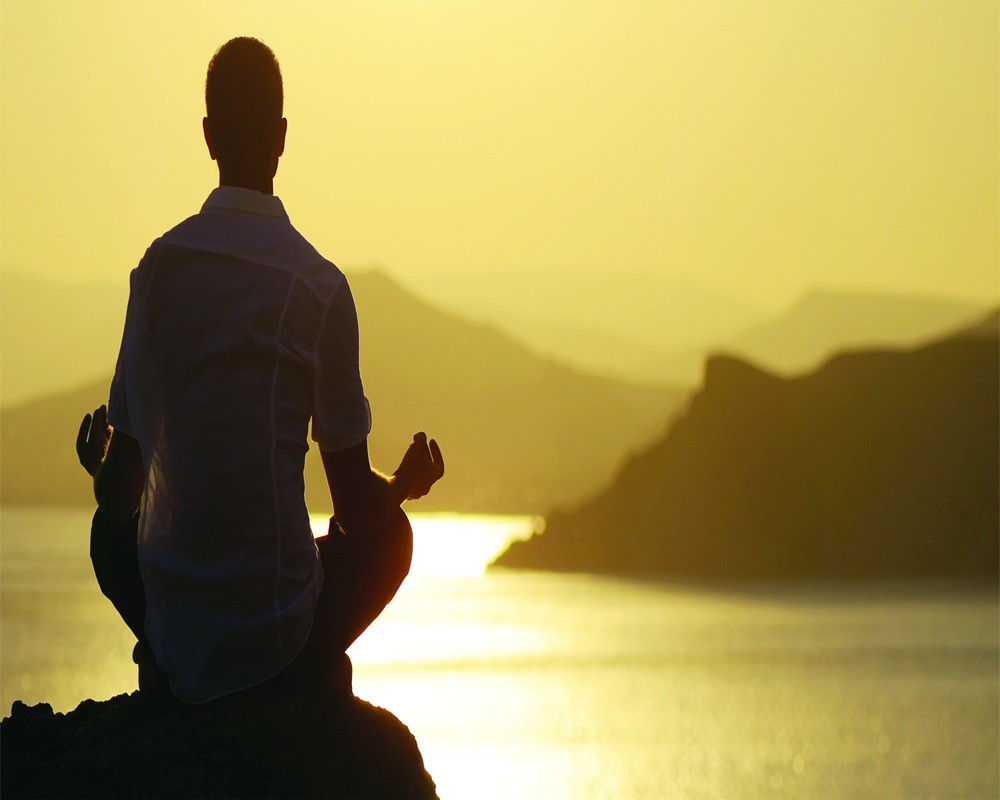Consciousness and health
The Role of Will in Sadhana
Abstract
True Will is free from all mental or vital interference. As long as they are involved, there has to be effort. Effort is necessary in opening to the psychic influence and, as that gradually happens, effort is replaced by surrender and the true Will emerges in our sādhanā.
‘Will’ commonly implies the power by which a person can direct his thoughts and actions or influence those of others. More particularly, it implies the mental control that one can use in controlling one’s own impulses. In Sri Aurobindo’s yoga, the term has a much wider and deeper meaning than merely a mental power. Sri Aurobindo defines will as a force of the being or the consciousness. There are, he states, many parts in an individual being, and corresponding planes of cosmic consciousness, of which mental consciousness is a very limited part.
Mental will or vital will is only an outward form of the essential will in the consciousness:
“There is a consciousness other than mind and vital — if there were not, there would be no use in doing sadhana. The true will belongs to that consciousness (1).”
Therefore, there is will in every level of consciousness. There is thus what can be called psychic will, the force of consciousness pertaining to the psychic being or consciousness, which is far more significant than the mental will in the practice of sādhanā. As the Mother says:
“I believe there is a vast difference between an effort for transformation which, precisely, comes from the psychic centre of the being and a kind of mental construction to obtain something.
“I don’t know, it is very difficult to make oneself understood, but so long as the thing goes on in the head in this way (Mother turns a finger near her forehead), it has no power. It has a very little force that is extremely limited. And all the time it belies itself. One feels that with great difficulty one has gathered up one’s will, artificial enough, besides, and one tries to catch something, and the very next minute it has all vanished. And one doesn’t even realise it; one asks oneself, How did it happen?
“I don’t know, indeed it seems to me very difficult to do yoga with the head — unless one is gripped.
“The will is not in the head.
“The will — what I call the will — is something that’s here (Mother points to the centre of the chest), which has a power of action, a power of realisation (2).”
A basic difference between mental will and psychic will is that the former is characterised by a sense of Tapasya, consisting of effort and struggle, whereas the action of psychic will is spontaneous and effortless. In the early stages of sādhanā, during which personal effort is indispensable, one must rely primarily on the mental will.
As Sri Aurobindo states:
“The development of the experience in its rapidity, its amplitude, the intensity and power of its results, depends primarily, In the beginning of the path and long after, on the aspiration and personal effort of the sadhaka (3).”
“Yoga is an endeavour, a Tapasya — it can cease to be so only when one surrenders sincerely to a higher Action and keeps the surrender and makes it complete (4)”
The psychic will replaces the mental will progressively, with the gradual emergence of the psychic being from behind the outer being and its coming to the front. At the beginning, the psychic being acts from behind and has only a weak and indirect influence on the outer being.
As Sri Aurobindo writes:
“The psychic being emerges slowly in most men, even after taking up sadhana. There is so much in the mind and vital that has to change and readjust itself before the psychic can be entirely free. One has to wait till the necessary process has gone for enough before it can burst its agelong veil and come in front to control the nature (5).”
References
1. Sri Aurobindo. The Complete Works of Sri Aurobindo, Volume 29. Pondicherry: Sri Aurobindo Ashram Trust; 2013, p. 263.
2. The Mother. The Collected Works of the Mother, Volume 6. 2nd ed. Pondicherry: Sri Aurobindo Ashram Trust; 2003, pp. 138-39.
3. Sri Aurobindo. Complete Works, Volume 23-24; 1999, p.58.
4. Sri Aurobindo. Complete Works, Volume 29, p.81.
5. Sri Aurobindo. Complete Works, Volume 30; 2014, p. 363.
Dr. A.S. Dalal, who lives in Pondicherry, is the author and compiler of many books based on the Works of Sri Aurobindo and the Mother.
Share with us (Comments,contributions,opinions)
When reproducing this feature, please credit NAMAH,and give the byline. Please send us cuttings.



